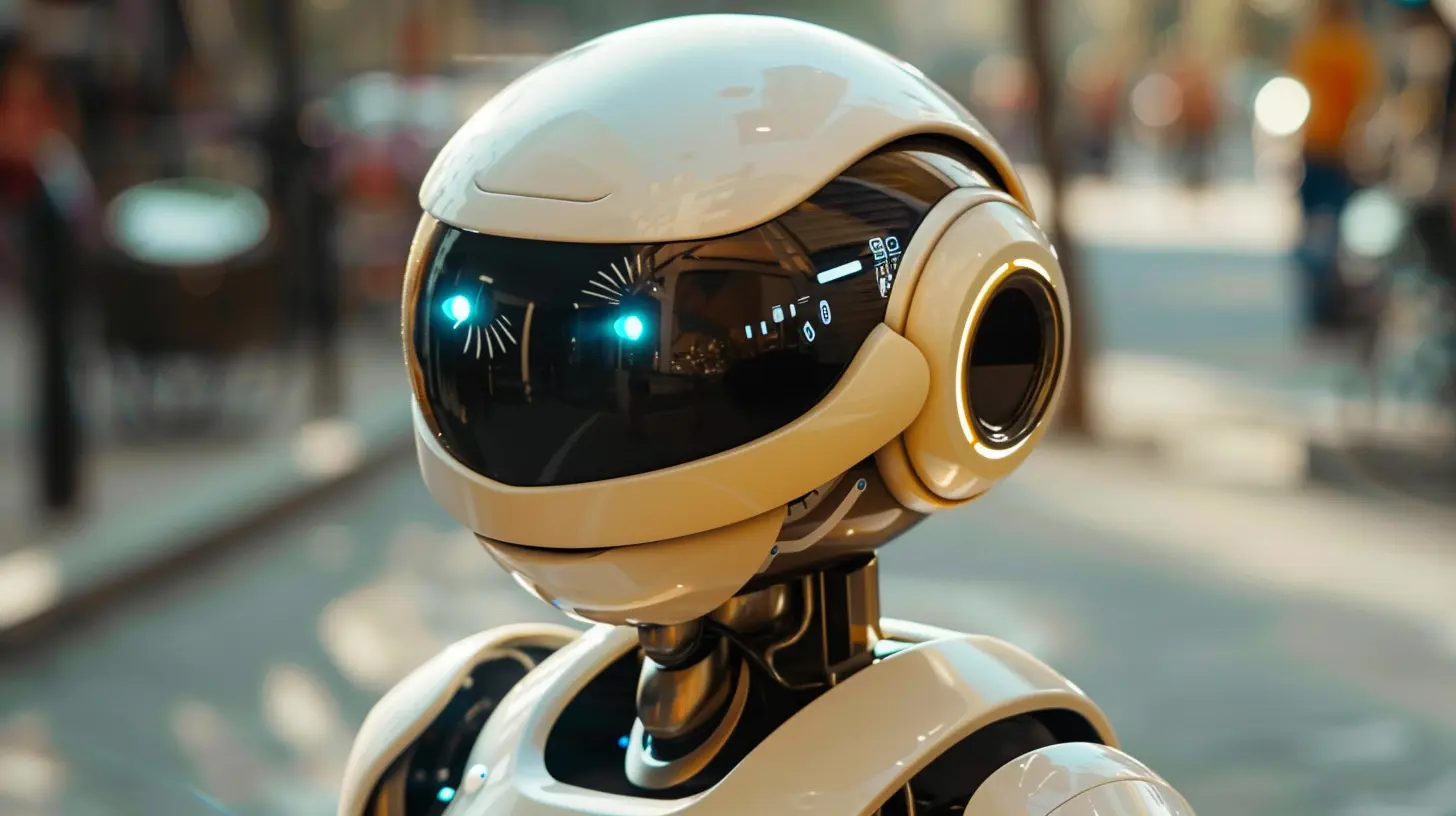AI and the Future of Work: Fairness in Automation
17 June 2025
The rise of artificial intelligence is impossible to ignore. AI is touching nearly every corner of our lives—from smart assistants that help us manage schedules to complex algorithms transforming how businesses operate. But when we talk about AI in the workplace, it stirs up a mix of excitement, curiosity, and, let’s be honest, a little fear too.
One big question sits at the heart of this conversation: Is automation fair? As machines become smarter, faster, and cheaper to run than humans, the way we work—and who gets to work—could change dramatically. So, let’s untangle the relationship between AI and the future of work, particularly how we can make automation more fair and inclusive for everyone.
What’s Happening With AI Right Now?
Before diving into fairness, let's get a clearer picture of where things stand. AI is no longer just a buzzword. It’s driving real change in industries like healthcare, logistics, finance, education, retail... you name it.Think about how chatbots handle customer support, how algorithms screen job applicants, or even how machines can now write code, drive cars, and analyze medical scans better than some professionals. These are not sci-fi stories—they're real, happening today, and growing fast.
But here’s the twist: while AI can make businesses more efficient, it also raises questions about job security, skill gaps, ethical use, and equal access.
Why Fairness in Automation Matters More Than Ever
Let’s face it—machines don’t need sleep, breaks, or healthcare benefits. For employers, that sounds like a dream. But for many workers, it’s more like a nightmare. When machines can replace not just physical work but also cognitive tasks, fairness becomes a crucial piece of the automation puzzle.Here's why it's such a big deal:
- Jobs are evolving or disappearing. Routine tasks are being automated, and people whose roles depend on those tasks are at risk.
- Bias in AI is real. Algorithms learn from data, and if that data is biased (hint: it often is), the AI can make unfair decisions—like rejecting qualified job applicants or denying loans based on flawed patterns.
- Access to AI isn't evenly spread. Big companies and wealthy countries benefit more than small businesses and developing economies.
If we don’t build fairness into the system now, we risk widening the gap between the haves and the have-nots.
The Double-Edged Sword of Efficiency
AI is brilliant at doing repetitive tasks with laser-focused precision. It doesn’t whine, doesn’t need coffee, and never tunes out during boring meetings. But the very thing that makes it efficient also makes it dangerous—because it doesn’t understand context, emotion, or ethics the way humans do.Sure, it might be efficient to have AI decide who gets hired. But what if it discriminates against women because your training data favors male applicants? That’s not just bad tech—it’s unfair and unethical.
So, while efficiency is great, it can’t be the only goal. We need to balance productivity with human values and social responsibility.
Reskilling: The Silver Lining in Automation
Here’s the good news: not all jobs are disappearing—many are just changing. That shift creates something powerful: opportunity.Think of automation as a road trip. Yes, you’re leaving behind the familiar, but you’re also heading somewhere new. And that "somewhere" is packed with exciting roles we've never even imagined before.
From AI trainers and data ethicists to robotic process managers and digital fluency coaches, the future of work is being reshaped. The key to grabbing these opportunities? Reskilling.
Governments, companies, and communities need to step up and offer:
- Affordable training programs
- Apprenticeships for new-tech jobs
- Mentorship opportunities
- Accessible online education
Investing in people, not just machines, is how we create a future that’s not only efficient but also empathetic and fair.
Can AI Really Be Unbiased?
Let’s call it out—AI is as biased as the humans who build it. It learns from data, and if the data is skewed, so is the output. Garbage in, garbage out.A real-world example? Facial recognition systems that misidentify people of color at alarmingly high rates. Or recruitment tools that automatically rank male candidates higher than female ones based on past hiring trends.
So how can we fix this? Here are a few ideas:
- Transparency in algorithms: People should know how and why AI decisions are made.
- Diverse teams building AI: Tech should be developed by people who reflect the world’s diversity.
- Regular audits: AI systems need to be tested and corrected frequently for bias.
Fairness in automation starts with accountability. If we wouldn’t accept discrimination from a human manager, we shouldn’t accept it from a robot either.
Who Decides What’s Fair?
This is the million-dollar question.Is fairness letting everyone have equal access to AI tools? Is it making sure people aren’t fired without a human appeal process? Or is it about making sure the benefits of AI are shared across all income levels and regions?
The answers aren’t simple, and they certainly aren’t one-size-fits-all. That’s why governments, tech companies, educational institutions, and everyday workers need to collaborate. No one has all the answers, but together, we can build guardrails to protect fairness in an increasingly automated world.
How Governments Can Play a Role
Governments across the globe are already starting to think about how AI will impact jobs. But thinking is just the first step. It’s time to act.Here's how policymakers can help:
- Create strong labor protections for workers displaced by AI
- Offer subsidies or tax breaks for companies investing in human capital (think upskilling, wellness, education)
- Mandate algorithmic audits to catch and correct bias
- Encourage public-private partnerships that lead to inclusive innovation
Let’s be real: regulation is often slow to catch up with technology. But when it comes to people’s livelihoods, we simply can’t afford to lag behind.
How Companies Can Lead With Ethics
Businesses are the frontline players in automation. They’re the ones installing the AI systems, making hiring decisions, and redesigning workflows. That means they have a huge responsibility to make sure their choices are fair and transparent.Here’s what leading with ethics might look like:
- Human-in-the-loop systems, where AI assists but doesn’t replace final human judgment
- Fairness-focused KPIs (Key Performance Indicators) to measure AI’s impact on diversity and inclusion
- Clear communication with employees about how automation will be used and who’ll be affected
Done right, AI can boost productivity without bulldozing trust and morale.
Let’s Talk About Universal Basic Income (UBI)
Automation may increase productivity but reduce the number of available jobs, especially in certain sectors. This has led some experts to propose Universal Basic Income—a flat payment to every citizen, regardless of employment status.It’s still a controversial idea, but worth exploring. UBI could:
- Provide a financial cushion during reskilling
- Reduce anxiety around job loss
- Encourage entrepreneurship and creativity
No, UBI isn’t a silver bullet. But when paired with education and meaningful policy changes, it could be part of a fairer future where automation doesn’t mean alienation.
AI as a Tool, Not a Tyrant
It’s easy to picture AI as this unstoppable force that’s taking over everything. But let’s flip that script.What if, instead of replacing us, AI enhances us? Think of AI as your superpower—taking care of the boring stuff so you can focus on being human. More creativity. More empathy. More time for connection, innovation, and growth.
But here’s the catch: we have to design AI with intention and inclusion baked in from the start. Technology should serve people, not the other way around.
Wrapping Up: Building a Fair Future Together
At the end of the day, the future of work isn’t just about robots and coding—it’s about people. It’s about making sure that as we move toward smarter systems and greater efficiency, we don’t lose sight of fairness, equity, and human dignity.Yes, automation will change work forever. But fair automation? That’s where we all win.
If we double down on education, build ethical AI, create inclusive design teams, and support workers at every stage, we won’t just prepare for the future—we’ll shape it into something better.
So ask yourself: Are we building a future with people or without them?
Let’s make sure it’s the first one.
all images in this post were generated using AI tools
Category:
Ai EthicsAuthor:

Marcus Gray
Discussion
rate this article
2 comments
Wolf Mullen
AI's integration into the workplace must prioritize fairness and transparency. As we navigate automation's evolution, proactive measures will ensure equitable opportunities, empowering all workers while harnessing technology's transformative potential for a more inclusive future.
October 24, 2025 at 11:36 AM

Marcus Gray
Thank you for your insightful comment! Prioritizing fairness and transparency in AI is indeed crucial for creating an equitable and inclusive workplace as we embrace automation's potential. Your perspective aligns perfectly with the goals of fostering empowerment and opportunity for all workers.
Solaria Bell
This article sheds light on a crucial topic. As we embrace AI in the workplace, it’s essential to prioritize fairness and inclusivity to ensure that all voices are heard and valued, paving the way for a more equitable future.
June 17, 2025 at 12:01 PM

Marcus Gray
Thank you for your insightful comment! I completely agree that prioritizing fairness and inclusivity in AI is vital for an equitable future in the workplace.


